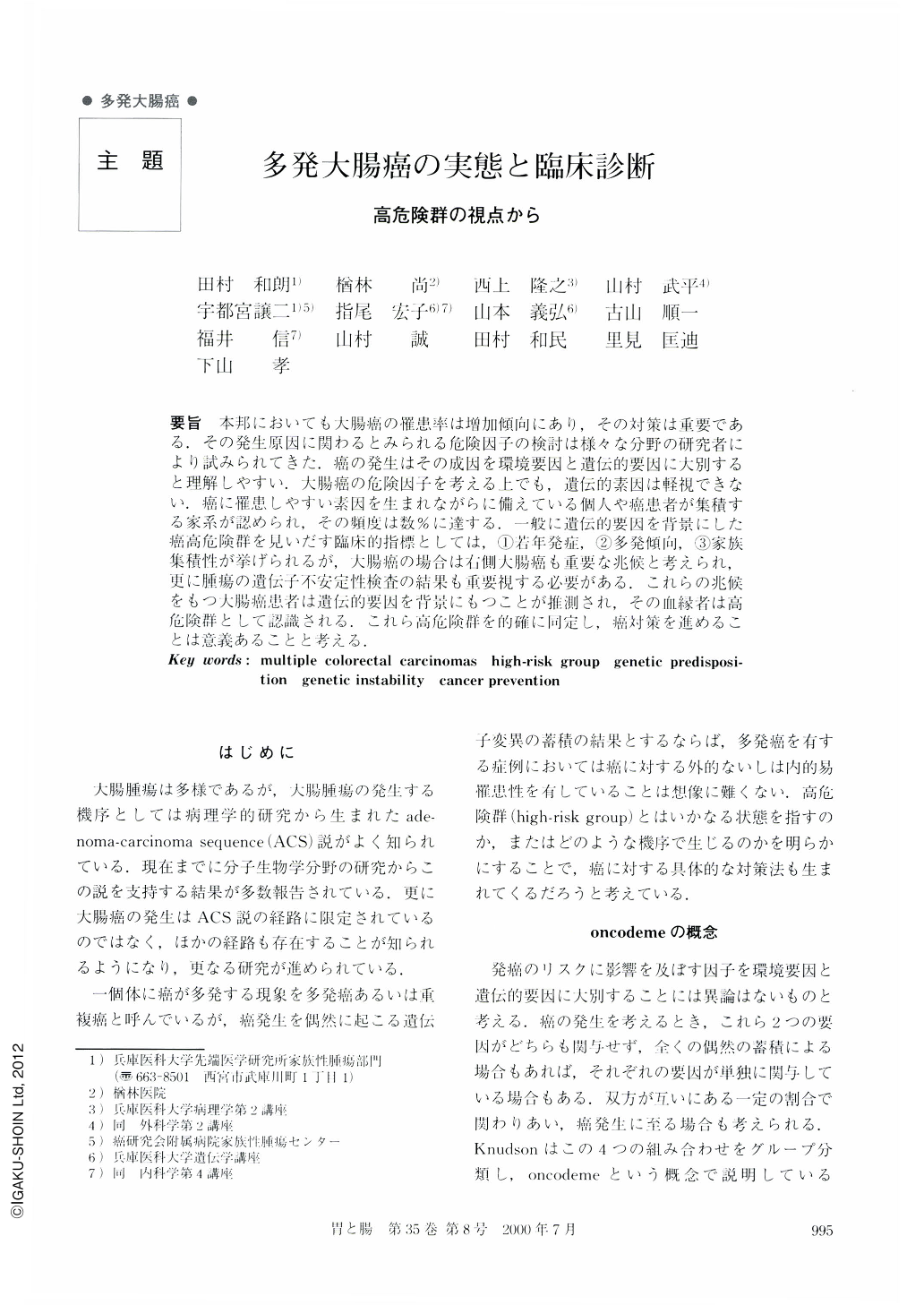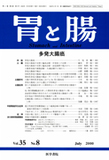Japanese
English
- 有料閲覧
- Abstract 文献概要
- 1ページ目 Look Inside
要旨 本邦においても大腸癌の罹患率は増加傾向にあり,その対策は重要である.その発生原因に関わるとみられる危険因子の検討は様々な分野の研究者により試みられてきた.癌の発生はその成因を環境要因と遺伝的要因に大別すると理解しやすい.大腸癌の危険因子を考える上でも,遺伝的素因は軽視できない.癌に罹患しやすい素因を生まれながらに備えている個人や癌患者が集積する家系が認められ,その頻度は数%に達する.一般に遺伝的要因を背景にした癌高危険群を見いだす臨床的指標としては,①若年発症,②多発傾向,③家族集積性が挙げられるが,大腸癌の場合は右側大腸癌も重要な兆候と考えられ,更に腫瘍の遺伝子不安定性検査の結果も重要視する必要がある.これらの兆候をもつ大腸癌患者は遺伝的要因を背景にもつことが推測され,その血縁者は高危険群として認識される.これら高危険群を的確に同定し,癌対策を進めることは意義あることと考える.
Recently, the incidence of colorectal cancer has gradually increased in Japan, so we should take appropriate countermeasures against it. Investigations about tumorigenesis have been studied by many researchers over a wide field. It is easily understood that environmental factors and genetic factors play a role in tumorigenesis, so we can't disregard the genetic background of colorectal carcinomas. It has been recognized that among individuals with cancer predisposition, who have a background of many cancer patients in their family, there is a rate of several percent of colorectal carcinomas. Clinical markers to detect individuals and families based on genetic background are the following features: (1) early age at onset of cancer; (2) increased frequency of multiple primary cancers; (3) familial aggregation of cancer patients. In colorectal cancer, proximal colonic cancer is also an important feature. Moreover, we think that the results of genetic instability of lesions provide important information for recognizing patients with hereditary colorectal cancer. Individuals with the above-mentioned features are inevitably suspected to be cancer patients based on genetic background, so their relatives should be recognized as a high-risk group for colorectal cancer. Appropriate screening and surveillance based on an individual's colorectal cancer risk should be carried out. By concentrating medical treatment resources on the high-risk group, improvement in the results of cancer measures can be expected.

Copyright © 2000, Igaku-Shoin Ltd. All rights reserved.


